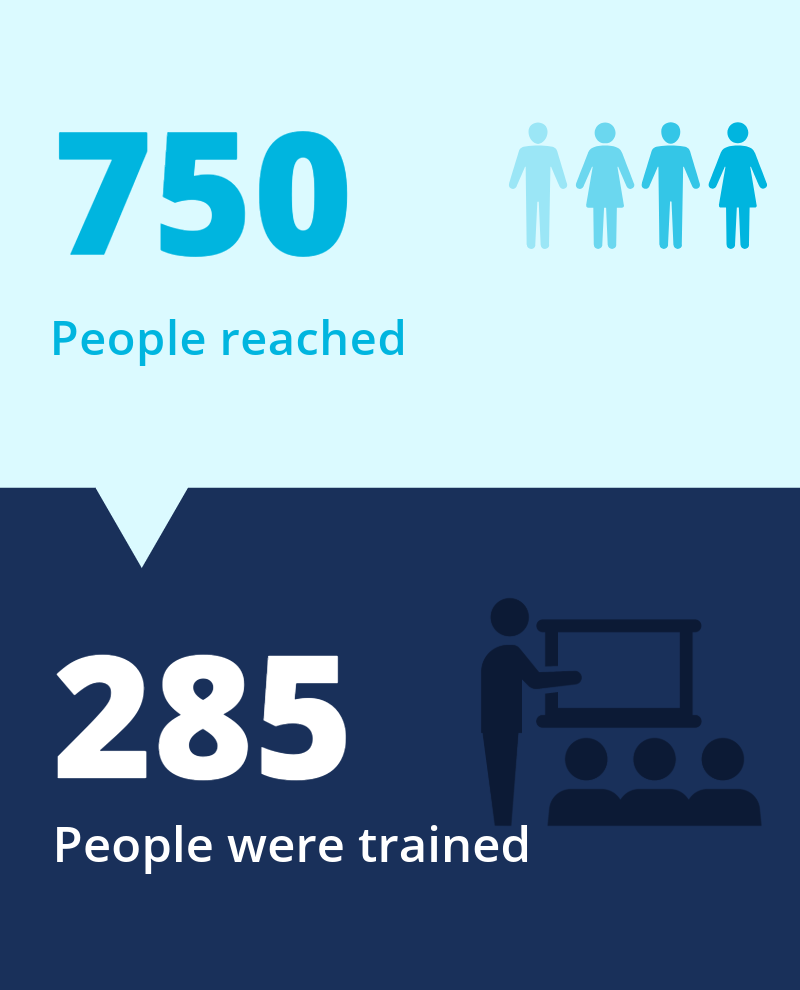Mali
Programme vision
To build a resilient Malian society in which sources of conflict and community tensions are addressed non-violently and in which those in power and those governed work together to meet the population’s needs and guarantee lasting peace and stability.


Contexte
Mali is at the epicentre of an escalating security and governance crisis in the Sahel. Today, the centre of the country is the main theatre of regional violence. Extremists continue to thrive and to exacerbate intercommunity and intracommunity grievances. Access to and management of natural resources adds to this challenging context.
Interpeace’s work in Mali focuses on:
- building trust between the Security and Defence Forces and the Malian population, including supporting women’s participation in Security and Defence Forces
- supporting the inclusive implementation of the Peace and Reconciliation Agreement resulting from the Algiers process
- strengthening resilience and establishing conflict prevention mechanisms at the local level
- supporting the fight against impunity and access to justice
- civic engagement and support for the role of women as agents of change in their communities
- accompanying international stakeholders to play a more effective role in supporting peacebuilding efforts.
Strengthening trust between justice actors and communities in central Mali
Access to justice and the legitimacy of the justice sector in Mali have been concerns for communities for decades. In a country where formal justice mechanisms have always operated alongside traditional forms of justice, new types of actors are offering alternatives to formal and traditional justice mechanisms.
The weakening of the state, its security coverage and the provision of basic social needs is correlated with the emergence of other actors, inclined to carry out their own forms of justice and challenge the authority of the formal justice system. These contribute to catalysing a cycle of violence and revenge, as well as greater distrust by the population towards the formal state mechanisms.
It is in this context that the Institut Malien de Recherche – Action pour la Paix, with the support of Interpeace, produced a participatory barometer to better understand and analyse the perceptions of Malian citizens on the challenges of access to justice, the causes of impunity and possible solutions to address them in an inclusive and sustainable manner.
The participatory barometer collected the perceptions and experiences of more than 2 000 people in six cercles in central Mali. Respondents included community members, traditional authorities and justice actors, all represented and involved in the creation of the indicators, survey and data analysis.
Results from the barometer showed that a major obstacle to the population’s access to justice is the result of misunderstanding and mistrust of the judicial system. The lack of knowledge of rules and procedures has also led to further misunderstanding, mistrust and even rejection of decisions by formal justice systems. In addition, in a region highly prone to poverty, the costs of legal proceedings and the geographical distances deter many citizens from taking legal action. The barometer also shows that suspicions of corruption and interference put into question the legitimacy of the formal justice system. The barometer highlighted that women face exacerbated difficulties to access justice.
Further strengthening trust in justice systems in central Mali
The creation and research process of the participatory barometer has already provided an opportunity to increase awareness and foster trust between communities and justice actors in the six cercles. The barometer aims to establish a better understanding of the challenges, realities, and opportunities for an improved judiciary system and process. Implementation of the recommendations from this process are expected to increase the population’s understanding of the judiciary systems and to further strengthen the frameworks for dialogue between population, traditional authorities and judiciary actors to eventually combat impunity and restore trust between the different actors.